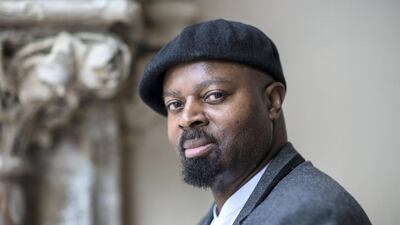Last summer, the novelist Sebastian Faulks described the organisation that has sponsored the Booker Prize for 17 years as "the enemy". "Man Group," the world's largest publicly traded hedge fund company, "are not the sort of people who should be sponsoring literary prizes," he said. "They're the kind of people literary prizes ought to be criticising."
It was an odd, ungracious thing to say – and I’m quite sure it had nothing whatsoever to do with the fact that Faulks has never won the award. Man Group has given more than £25 million (Dh120m) to the Booker Prize Foundation over nearly two decades of sponsorship. If only all of our enemies had such deep pockets.
Faulks’s comments resurfaced a few days ago, after Man Group announced that it was withdrawing its support for the Booker Prize from next year. The statement from chief executive Luke Ellis was conciliatory, but one suspects the mood inside the Man Group offices will not be too sombre. The relationship had become strained. One source told the BBC recently that Man Group felt underappreciated and this was evident in Ellis’s response to Faulks: “Literature and the arts need their champions to step in where public money has been pulled out.”
He is absolutely right. A literary award and a hedge fund are not, perhaps, the most obvious bedfellows, but the Booker Prize – and the arts in general – cannot afford to be too picky about who it accepts money from.
It is quite straightforward: without private sponsorship, many of the world’s great galleries and institutions would either cease to exist or be forced to push ticket prices so high that they exclude all but the wealthiest from the arts. Drive away the corporate sponsors and you risk harming the very thing you are trying to protect. This is particularly true if arts funding is being cut by governments, as it has been in the UK – where both the Booker Prize and Man Group are based – in the past few years.
All over the world, corporate sponsorship is propping up the arts. BP sponsors many arts institutions, including the British Museum and the Royal Opera House; JP Morgan recently announced its support for the San Francisco Museum of Modern Art; Emirates Airline has a long association with the annual literature festival in Dubai. Economic pragmatism isn’t the enemy of creativity; it is what keeps it alive.
Sponsorship of the arts is nothing new, either. Go all the way back to 15th-century Florence and it was the money of the Medici family, who made their fortune from banking, that funded the Renaissance. By removing the need for artists and writers – or, in this case, institutions and prizes – to generate income, these patrons and sponsors actually enable people to get on with the business of creating great art.
Is there a line that shouldn't be crossed? Yes, of course. One of the most egregious examples of how things can go wrong occurred in 2001, when the British writer Fay Weldon accepted a large sum of money from the jewellers Bulgari to mention their brand dozens of times in a novel called The Bulgari Connection. Admirable chutzpah; dreadful book. When the money influences the work in such a blatant way, it becomes worthless. Likewise, if Man Group had at any point decided to remove a novel from the shortlist, the Booker Prize would immediately have become redundant.
As the Booker Prize-winning author Ben Okri told me at the recent Jaipur Literature Festival: "It really just depends on the corporation's vision of their role in the human story. If their vision is that it's really about profit, then why would you enter into sponsorship of the arts? But if you see your role as contributing something to the human story and to culture, then it's not a problem."
For many people, though, it’s not about the influence these corporate sponsors might wield but about how the money was made in the first place. A group named Art Not Oil has, for example, protested against BP’s sponsorship of the arts for years.
The truth, though, is that BP will continue to pursue its oil interests, whether or not it sponsors a few galleries in London. Likewise, Man Group will continue to function as a highly successful hedge fund, regardless of its association with the Booker Prize. The moral high ground might be an admirable position to take, but, to be blunt, these corporate bodies will be fine either way – the same can’t necessarily be said for the institutions they help to fund.
Writing that gives me no great pleasure. In a better world, the arts would be properly supported by governments. In an ideal one, they would be self-funding. However, until we get there, museums, theatre companies, opera festivals, literary prizes and other arts initiatives will need to secure funding from external sources. Accepting corporate sponsorship is a necessary compromise that we must come to terms with.


